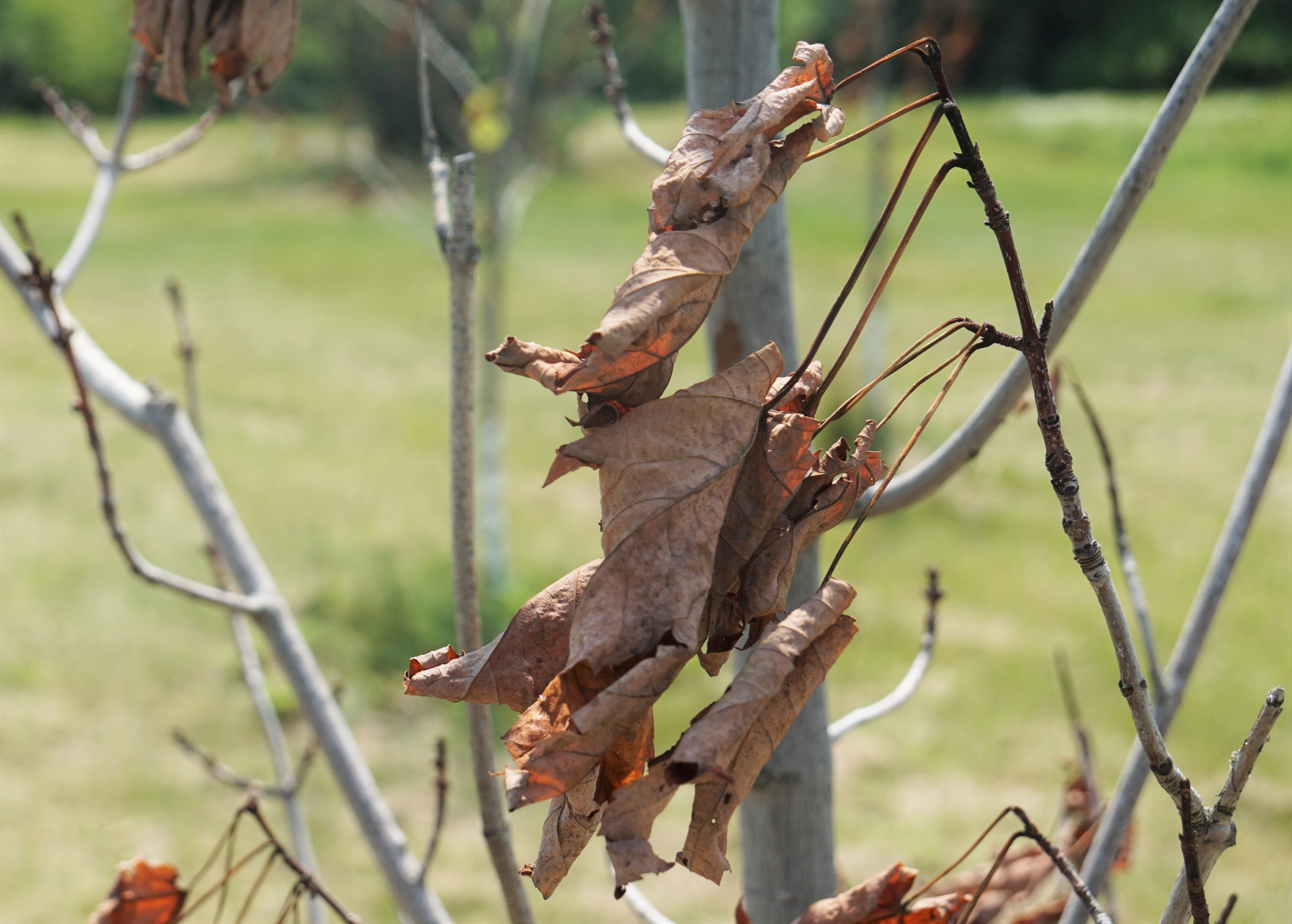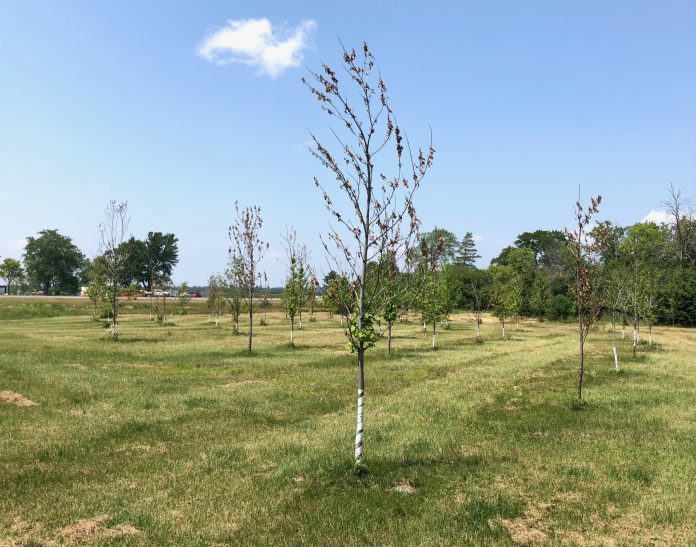By Charlie Senack
Trees that were planted in a park near Westboro Beach for Canada 150 appear to be dying, and some community members are saying they should have never been planted there in the first place. Now they are looking to save what they can and plan for the future.
The 150 maple trees that were planted in 2017 have been growing in a park located at the corner of Churchill Avenue North and Selby Avenue (the “Canada 150 Maple Grove”) for four years.
As the trees were planted on National Capital Commission-owned land by the City of Ottawa, the city was tasked with maintaining and watering the trees. But after three years that has stopped, leaving the plants to rely on Mother Nature for hydration.
In a statement provided to Kitchissippi Times by Tracey Schwets, program manager for the City of Ottawa’s Forest Management Branch, she said standard procedures were followed.
“All the sites involved in the project were watered weekly by the City of Ottawa from May to September for the first three years,” she said. “As per industry best practice for newly planted trees, watering did not continue this year at the area noted above, as the trees are in their fourth year and an examination this spring found that the trees had leafed out and were doing well.”
But some members of the Westboro Beach Community Association are questioning what planning went into the Canada 150 initiative. Nancy Mooney, a member of the association, says about 60, or one third, of the trees are now dead or dying. She feels the trees should have never been planted there given the area’s terrain.
“I do not think they should plant new trees because it is just not sustainable, because the ecology of that plain is gravel with very little soil,” said Mooney. “But I do think they should plant things that will be sustainable because there are lots of things that will grow down there.”

Mari Wellman, Westboro Beach Community Association co-president, also wonders how the site got chosen. Wellman said the area where the trees are located frequently floods in the spring and is dry in the summer.
After record-breaking floods in 2017, she said the site turned into a pond, becoming a watering hole for ducks and a place for children to paddle around. But come the warmer months it would dry out, and parts of the rock substrate would be exposed.
“We thought then, maybe the trees will survive, but it will require a lot of ongoing care and maintenance. Not a very sustainable situation,” said Wellman.
“We had wanted to engage the community to grow more milkweeds to provide a food source for monarch butterflies, to grow pollinator-friendly native plants,” she added. “We even looked into the possibility of having bee hives. The plans got relocated when the maples were planted.”
Schwets said these conditions are what the City of Ottawa’s Forest Management Branch believes made the trees die.
“Forestry staff now speculate that the sudden decline of the trees this year may have been due to a dramatic change in soil moisture from very dry conditions this spring,” she stated.

After signs this summer the trees weren’t thriving, city staff returned to Westboro Beach to begin watering efforts again. Schwets says they want to see if some of the dying trees are able to recover, and will reassess the situation in the fall and come up with a plan for next spring. She says that could include replacing the trees which did not survive.
A report titled “Westboro Beach Area Stewardship Project: Re-naturalization of the Atlantis Woods and Selby Plains Area” was produced by students from the Institute for Environmental Science at Carleton University in December 2017 — months after the trees were planted.
The extensive 127-page report examined existing vegetation of both areas and made specific recommendations regarding the control and elimination of non-native and invasive species and replanting with appropriate native species selected on the basis of the natural conditions of both distinct areas. Among its conclusions, the report specifically identified maples as not having potential for planting on Selby Plains. The report was produced in collaboration with community partners Westboro Beach Community Association and the Ottawa Stewardship Council.
Mooney says she hopes a variety of new plants can be planted on the site next spring, ones which will thrive and attract birds and pollinators to the beach.
“The bird population has drastically increased at Westboro Beach in the last five years, so they should plant stuff that encourages birds and pollinators to come,” she said. “We need to work with what’s there, and work to save what we can with the trees that are still alive.”
The community association plans to have meetings with the city to discuss next steps for the site. The city says the ward councillor will also be brought in for discussions, alongside other community members.
